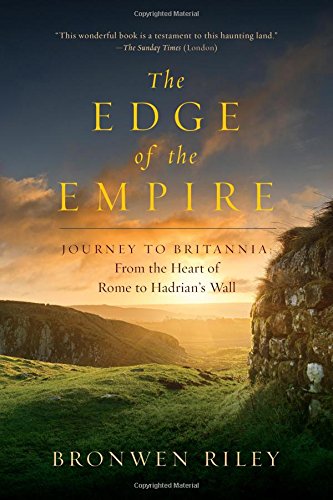
The Edge of the Empire
کتاب های مرتبط
- اطلاعات
- نقد و بررسی
- دیدگاه کاربران
نقد و بررسی

June 27, 2016
Riley, head of guidebooks at English Heritage, imagines a second-century C.E. travelogue based around Sextus Julius Severus's journey from Rome to Britain upon assuming his post as governor of Britannia in 130 C.E. Making clear that much is based on conjecture, Riley builds on documentary and archaeological evidence, and borrows relatable information from other areas of the empire or adjacent time periods in Britannia to provide a logically plausible scenario. She begins with a sketch of the Eternal City itself, moving northward across Gaul to Britannia and taking time along the journey to describe various aspects of life for a Roman citizen of the time. Once in Britain, Riley follows the course that Severus might have taken on his first tour of the province, giving precise distances between stops as well as including known features of each settlement and both Roman and modern names. A postscript delivers a further brief history of Britain under Roman rule and an idea of what a modern visitor might see at the various sites. There are maps and diagrams scattered throughout that help to bring this journey to life. Riley gives readers a reasonable snapshot of life as it might have been in second-century Britain.

Starred review from March 1, 2016
A delightful trip from Rome to Hadrian's Wall--in C.E. 130. On the surface, the book shouldn't be that interesting: descriptions of roads long gone, cities renamed, and modes of transportation gladly forgotten. Still, classics scholar and guidebook author Riley (Great Yarmouth Row Houses and Greyfriars' Cloister, 2011, etc.) has an impressive gift for travelogue. She tells the story of Sextus Julius Severus, the new governor of Britain, an imperial province as opposed to a mere senatorial one. Riley's descriptions of the roads along her journey will make readers want to visit for themselves. At the mouth of the Tiber River is Portus Ostientis, built by Claudius to hold 400 ships, even the enormous grain ships from Alexandria. A quick sail to Narbonne and passage through one of the three Gauls proves to be a fairly comfortable trek with good roads and hotels. The author deftly tells of alternate routes--and their advantages and problems--to Oceanus, an "immeasurable expanse of sea full of monsters and unfathomable tides at the ends of the earth"--now known as the English Channel. In London, the author takes off on a remarkable story of the towns and roads of Britain in the year 130. The maps and descriptions of the route through London, Bath, Wales, and north to the wall are informative, scholarly, and colorful. Along the way, Riley also discusses the druids, curious offerings to the gods, curse tablets, Roman baths, and other archaeological findings. Of course, the tale of Hadrian's Wall could make a book on its own, but the author has higher ambitions, and she achieves them in this successful evocation of "a journey to Britain in the Roman period." Great fun for anyone with even a slight knowledge of Roman and English history and geography--or those curious about them.
COPYRIGHT(2016) Kirkus Reviews, ALL RIGHTS RESERVED.

May 1, 2016
Imagine you are a newly appointed provincial governor to the distant and rainy island of Britannia, there to represent Roman emperor Hadrian. How do you arrive? What cities do you tour, and what are the most important activities? This thought experiment underpins Riley's (editor, English Heritage Red Guides) journey of Roman-occupied Britain. She focuses on the era of Hadrian (r. 117-38 CE), in particular the eponymous Wall bordering Caledonia. As a journalist and heritage guide editor rather than a scholar, the author's approach is with an eye to engagement as opposed to historical accuracy. To ensure a smooth narrative as her real-life governor Julius Severus travels around Britannia, the author makes choices based on the existing evidence, with footnotes and copious endnotes to justify her reasoning. This takes readers to second-century Britannia more effectively than a traditional chronicle and serves as a guide to destinations in modern Britain. VERDICT Roman history and British history readers will relish this entertaining study of Britannia; travel fans will find this unusual take on the genre appealing as well.--Margaret Heller, Loyola Univ. Chicago Libs.
Copyright 2016 Library Journal, LLC Used with permission.

























دیدگاه کاربران